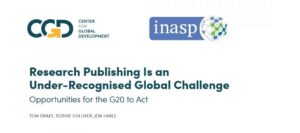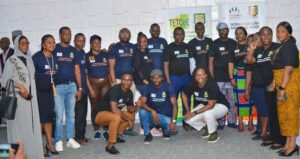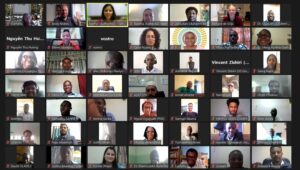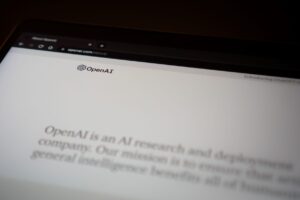Publishers, Zanzibar and chimpanzees
Maaike Duine is leading on a pilot project entitled “Strengthening Indigenous Academic and Digital Publishing in Tanzania”. The project aims to increase the quality of academic publishing in Tanzania through the creation of a consortium of academic publishers and through training, skills development and capacity building. This is the second blog outlining her experiences working on the project.
One of the first goals of the project is to get a clear picture of academic publishing in Tanzania. What kind of journals and books are being published? What knowledge is already available? In which areas of academic publishing is training necessary? What content is available online? In order to answer these questions, we are currently visiting publishers throughout Tanzania to carry out the needs assessment. Most academic journals in Tanzania are being published by the Directorates of Research and Publications at the different universities, whereas most scientific books are being published by commercial publishers. It is not always easy to get in touch with the right person. It seems that email is not always the most effective way to get in contact as many people don’t check theirs regularly. That said, I’ve found if I reach someone by phone then things get moving much more quickly (getting these phone numbers, however, can be tricky). Once appointments have been made, all of the publishers are interested and willing to make time.
There are big differences between the universities and their publications. The University of Dar es Salaam has a huge campus, its own bookshop and publishes over 15 journals whereas for example the International Medical and Technological University in Dar es Salaam is much smaller and publishes one journal. At Hubert Kairuki Memorial University, I had to pass people in hospital beds for my appointment with the director of Research and Publications and at the Dar es Salaam University Press, there were several printing machines active. Journals are being published in different fields such as agriculture, languages, health, law and so on. Most of them in English — but some are in Swahili.
All of the publishers we visited are very keen on joining the consortium of academic publishers and are looking forward to increase their knowledge on scientific publishing and are specifically interested in learning more about online possibilities. Some of them already undertake online activities (for example on African Journals Online [www.ajol.info]) but online content seems random and often not up-to-date. Some of the editors I have been speaking to are also quite skeptical about the online possibilities as internet connection is not always reliable in Tanzania and all institutes suffer from power cuts regularly. Although the Commission for Science and Technology (COSTECH) where I am based, has a generator, we also experience power cuts here which can be very annoying when your laptop runs out of battery!
Two of the universities I have visited were on the island of Zanzibar. One of the big advantages of living in Dar es Salaam is the close proximity to this tropical island — with its beautiful beaches and amazing snorkeling, it offers good weekend breaks. I went there during the Sauti za Busara festival. We enjoyed all styles of music from throughout Africa, varying from reggae, jazz, hiphop to dance and afrobeat. We also visited the local market in Stone town, the biggest town on the island. You can get all sorts of freshly grilled seafood and sugarcane juice. So I certainly didn’t mind going back to the islands to visit the universities a few weeks later.
Another weekend trip was a visit to Gombe National Park in the West of Tanzania, situated by Lake Tanganyika which forms the border with Congo. This park is known because of Jane Goodall’s research on chimpanzees. After a very steep hike of about one hour, we were able to see a group of about 15 chimpanzees. Amazing! We could just sit and watch the young ones play and the older ones just chilling or looking around for food. You are not supposed to look them in the eyes and when they approach you, you should hug the nearest person or tree so they will not do you any harm. Luckily none of this happened and after a couple of hours we returned to the lodge to take a swim in the lake. This lake is one of the biggest freshwater lakes in the world. When you enjoy the view, it is almost as if the horizon disappears and you are staring at the end of the world.
In my next blog you will learn how to read Swahili time!
Read Maaike’s previous post “Strengthening academic publishing in Tanzania – getting ready for Dar!“




